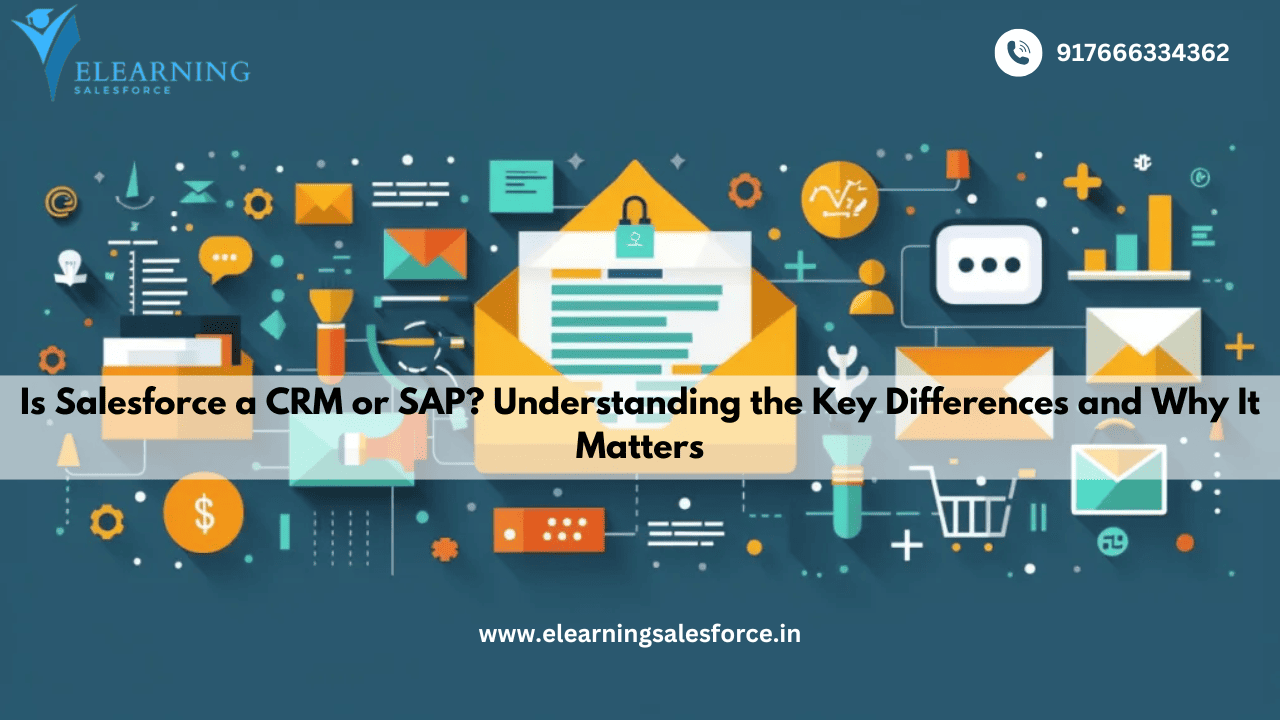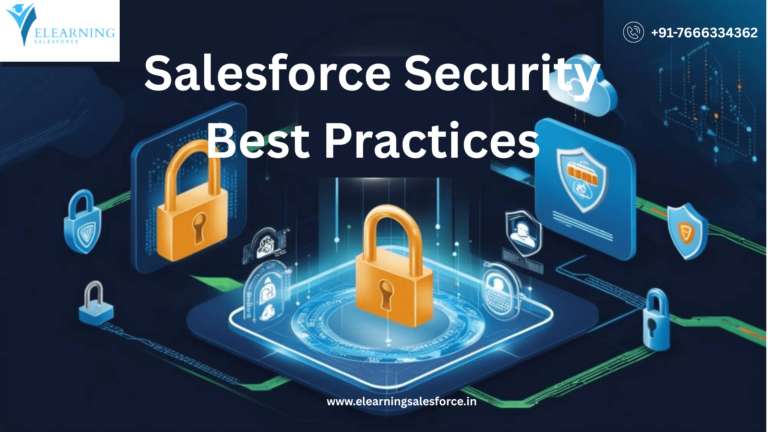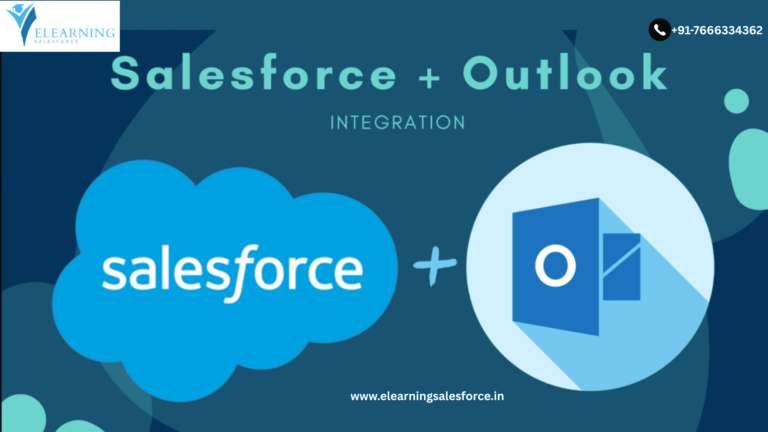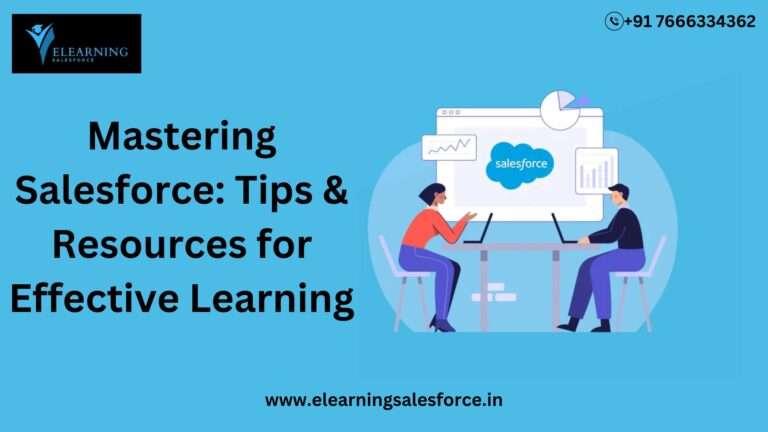You’ve undoubtedly heard of SAP and Salesforce if you’re new to the world of business software. However, have you ever inquired as to what they are, how they vary, and why you should be concerned? Understanding these systems is essential, whether you’re a business leader attempting to choose which tool is best for your organization or an employee hoping to further your career.
This blog will explain the fundamentals of both SAP and Salesforce, highlight their salient features, and assist you in selecting the best option.
What is Salesforce?
Salesforce is a well-known platform for customer relationship management, or CRM. Fundamentally, Salesforce assists companies in managing their contacts with clients, customers, and potential clients. Salesforce is made to keep everything in one location and assist businesses in forging closer bonds with their customers, whether you’re tracking sales leads, offering customer support, or evaluating customer data.
Key features of Salesforce include:
- Sales Cloud: To oversee sales processes and operations.
- Service Cloud: Dedicated to enhancing support and customer service.
- Marketing Cloud: To manage customer journeys, advertising, and email marketing.
- Analytics Cloud: For reporting and data analysis.
Because Salesforce is well-known for its cloud-based services, businesses of all sizes may easily use it. Retail, healthcare, financial services, and other industries can all benefit from its adaptability and customization.
What is SAP?
The Enterprise Resource Planning (ERP) system is SAP (Systems, Applications, and Products in Data Processing). SAP unifies key business operations including finance, supply chain, manufacturing, procurement, and human resources into a single system, in contrast to Salesforce, which concentrates on customer interactions. In essence, SAP assists companies in managing every aspect of their internal operations.
Key features of SAP include:
- SAP S/4HANA is a cutting-edge ERP package made to assist businesses in managing their essential operations in real time.
- SAP SuccessFactors: For employee engagement and HR administration.
- SAP Ariba: A tool for supply chain and procurement management.
- For enterprise-wide analytics, use SAP Analytics Cloud.
SAP is best suited for large-scale enterprises that need a comprehensive solution to manage complex operations across multiple departments.
So, Is Salesforce a CRM or SAP?
The answer is simple: Salesforce is a CRM, and SAP is an ERP. While both tools are used to streamline business processes, they serve different purposes and industries.
- Salesforce assists companies in tracking sales and service interactions, managing client relationships, and raising customer satisfaction levels.
- In contrast, SAP assists businesses in managing their supply chain, finance, human resources, and internal resources.
Consider it this way: SAP is all about managing the internal procedures that keep a business functioning properly, whereas Salesforce concentrates on the exterior side of the business—interactions with customers, prospects, and clients.
Why Does This Matter for Your Career or Business?
Whether you want to advance your career, expand your company, or just become more tech-savvy in today’s digital environment, it is imperative that you comprehend the distinction between CRM and ERP systems. This information is important for the following reasons:
- Career Growth
Being proficient in SAP and Salesforce could provide you a competitive advantage if you work in the business or technology sector. Companies frequently look for people with experience in ERP systems like SAP to streamline internal procedures and CRM platforms like Salesforce to boost sales and customer service. Gaining knowledge of these platforms will put you in a position to take advantage of new opportunities, earn more money, and have more job stability. - Improving Business Efficiency
Knowing when and how to use these technologies can significantly increase a company’s efficiency. Processes can be streamlined, errors may be decreased, and everyone can stay on the same page by using SAP for internal operations and Salesforce for client relationships. Effective use of these technologies by staff members promotes improved communication, higher output, and eventually more corporate success. - Better Decision Making
Strong analytics features provided by SAP and Salesforce can assist businesses in making data-driven decisions. Businesses can gain real-time information into their customer behavior, sales success, and operational efficiency by leveraging these platforms. This enables managers and executives to make better, more informed choices that can spur expansion.
Real-World Example: How a Business Uses Both Salesforce and SAP

Let’s take a look at an example of how a company might use both Salesforce and SAP to enhance their operations:
Consider an electronics sales company. The sales staff may manage customer relationships, track prospects, and finalize deals using the Salesforce CRM system. In the meantime, the operations team could handle orders, track finances, and manage inventories using the SAP ERP system.
While the operations team using SAP observes that the product is running low in supply, the sales team using Salesforce may observe that a particular product is gaining popularity. By facilitating more effective coordination between the two teams, this real-time information guarantees that the company can satisfy client demand without interfering with daily operations.
Take the First Step Toward Success
After learning the main distinctions between SAP (ERP) and Salesforce (CRM), it’s time to investigate how both platforms might benefit you or your business. Both Salesforce and SAP are strong tools that may help you advance, whether your goal is to enhance your business operations or your professional prospects.
you may be interested in this blog
A Guide to 50+ Salesforce Einstein AI Tools
Demystifying Loops in Salesforce Apex
SAP for Small and Medium-sized Enterprises
C++ Programming Course Online – Complete Beginner to Advanced




